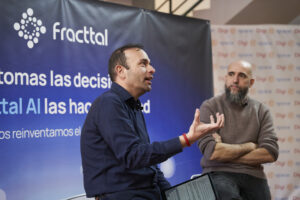At a debate in February Ivan Duque posed a question that was equal parts chummy and equal parts snarl.”The thing is Gustavo, when you were the were the mayor of Bogotá you promoted class hatred.” In response, Petro spoke directly from his story:
“I was a student, enlisted in the army, was a representative for Zipaquira when the military came to beat me and tortured me. Helping the poor is not class hatred.”
Few statements can describe Petro the way the candidate did himself with that response. Firm in his convictions ever since he had joined the revolutionary insurgents M-19, Petro has styled himself as the antidote for Colombia’s systemic problems of corruption, neglect of the nation’s poor and state-sponsored violence.
His early exploits as part of the M-19 took him to the top of the chain of command by the time the group disbanded and joined mainstream politics in the early 90s. He had already represented Zipaquira (the small town north of Bogota where he grew up) and Cundinamarca at the highest levels before death threats required him to leave Colombia as diplomatic attaché in Brussels until 1996.
His return to politics has been a slow but remarkable climb towards the highest post in the land and, to go with his compelling story, it has had its share of antagonists. To begin with, the Mayor of Bogota Enrique Peñalosa who won in what was a humiliating loss for Petro in 1997 was, within the space of 13 years, in second place as Petro took the mayoral crown in 2010. Petro was then unceremoniously removed following a scandal relating to public mismanagement of waste disposal trucks though the ruling that barred him from entering politics for 15 years has since been overturned.
And then there was his fierce opposition to President Uribe, when a series of dissenting attacks endeared him to the public over growing concerns of Uribe’s policy and leadership–especially on issues like parapolitics, the Anti-terrorism Statute, constitutional reforms and the 2003 referendum. Petro was unable to convert his growing popularity into an election victory in 2010, gaining a third place finish.
In 2018, he will have his chance again, if not against Uribe, at least against Uribe’s preferred candidate Ivan Duque. This time round, he is the favoured candidate in polls, closely beating out other leftist candidates like Fajardo and making investors and bankers nervous along the way with his Chavez-styled socialist rhetoric. Few believe that he can do it, but were he to pull off the unexpected in May, few would be surprised either.


